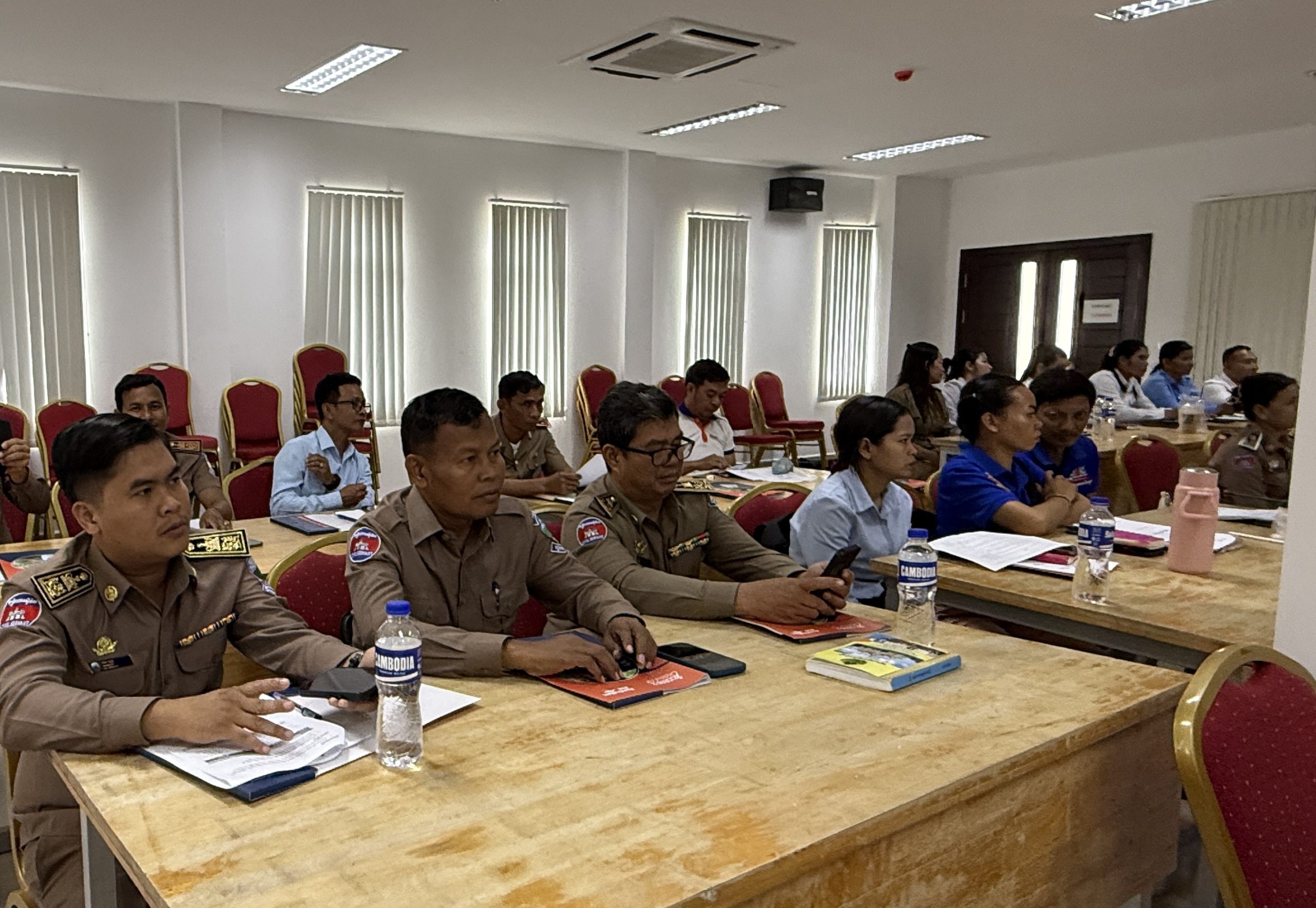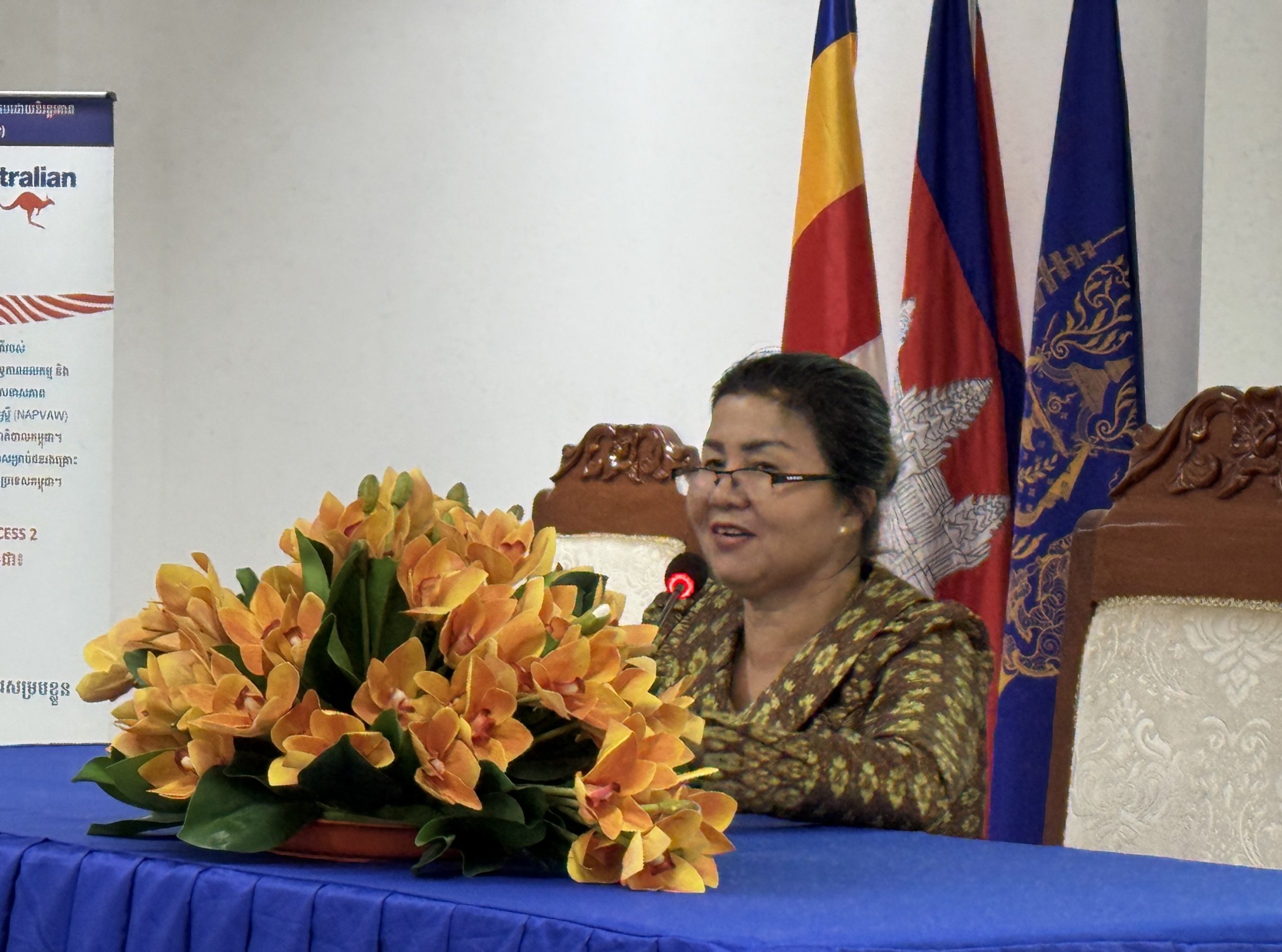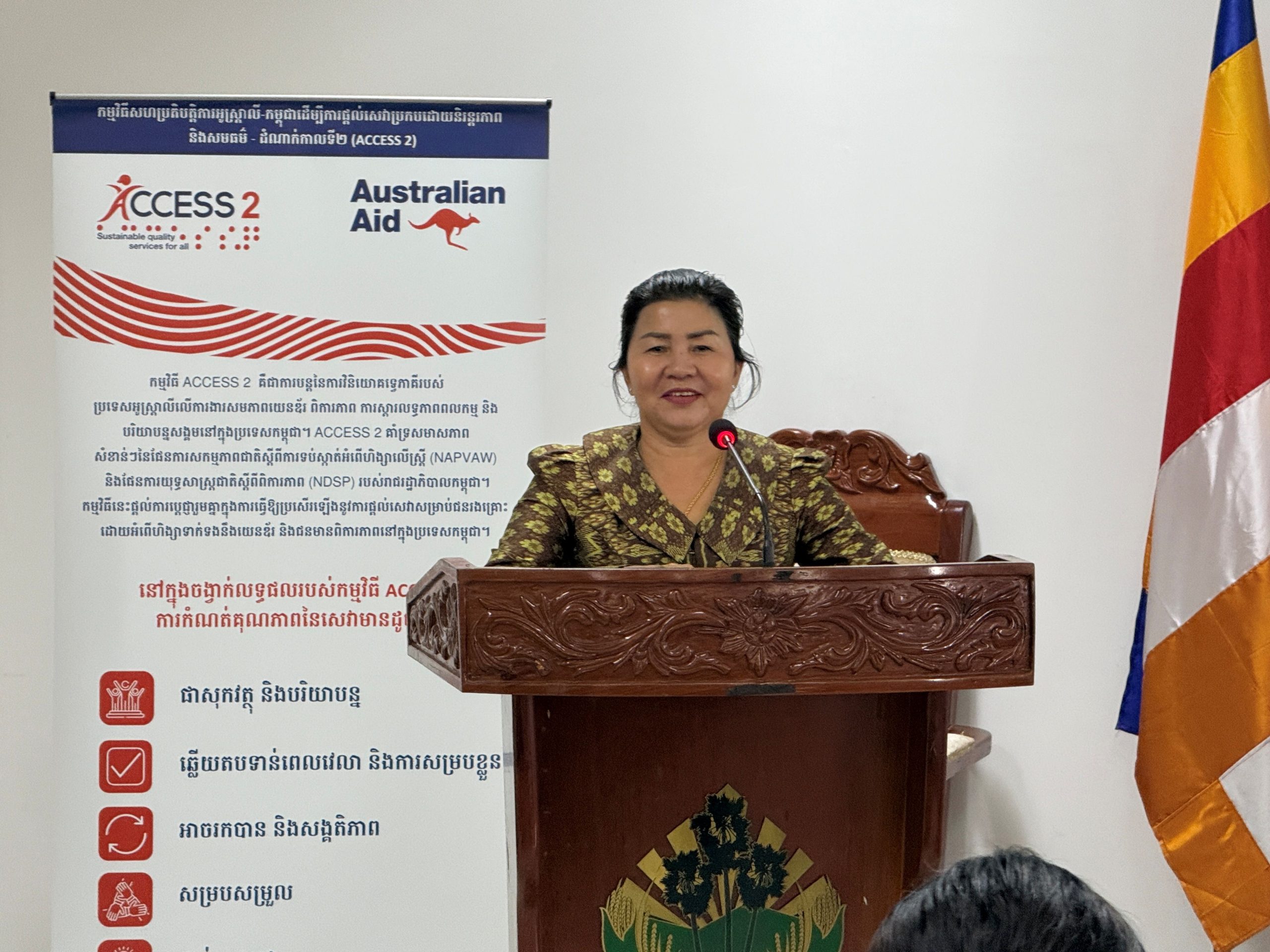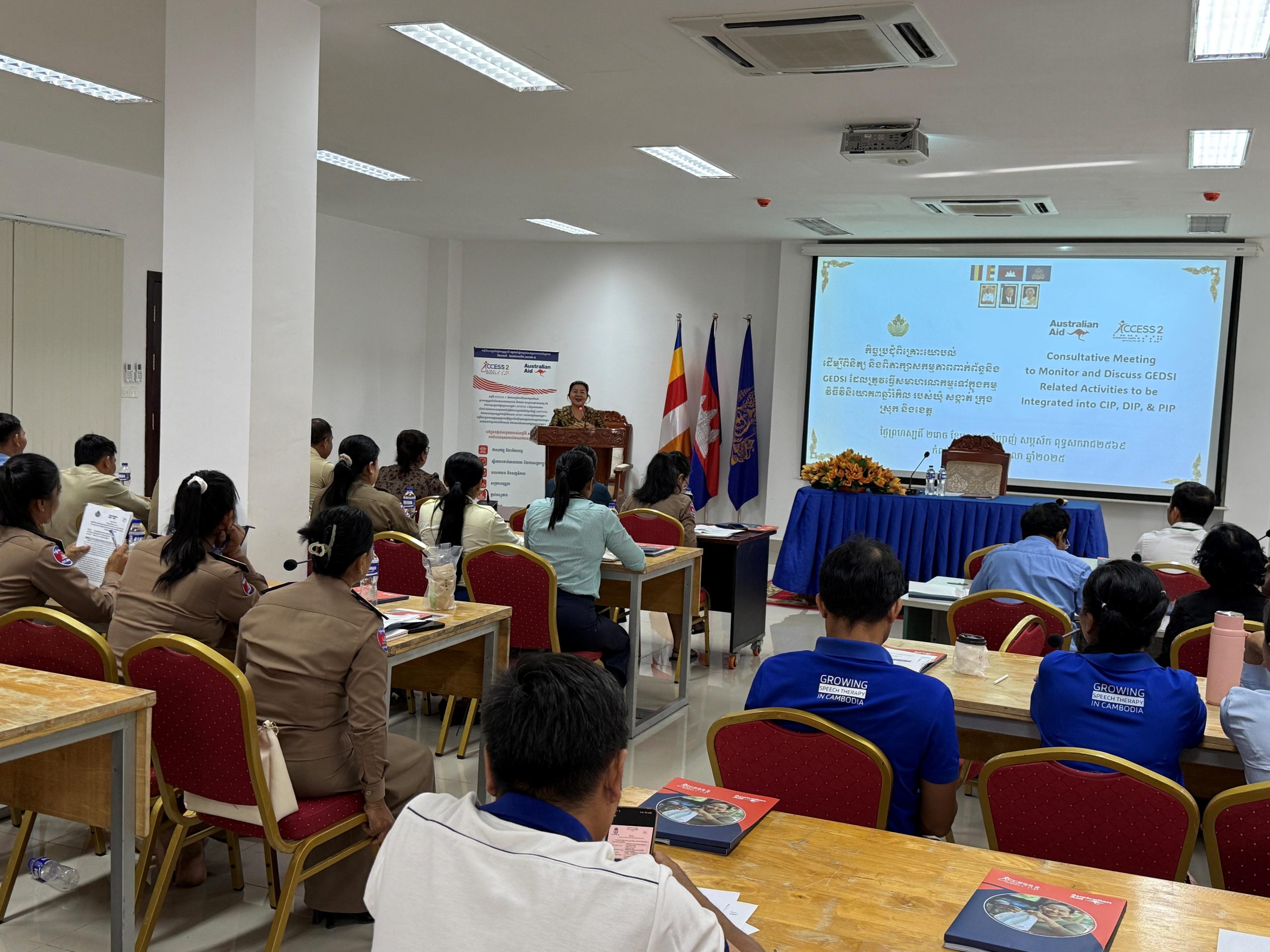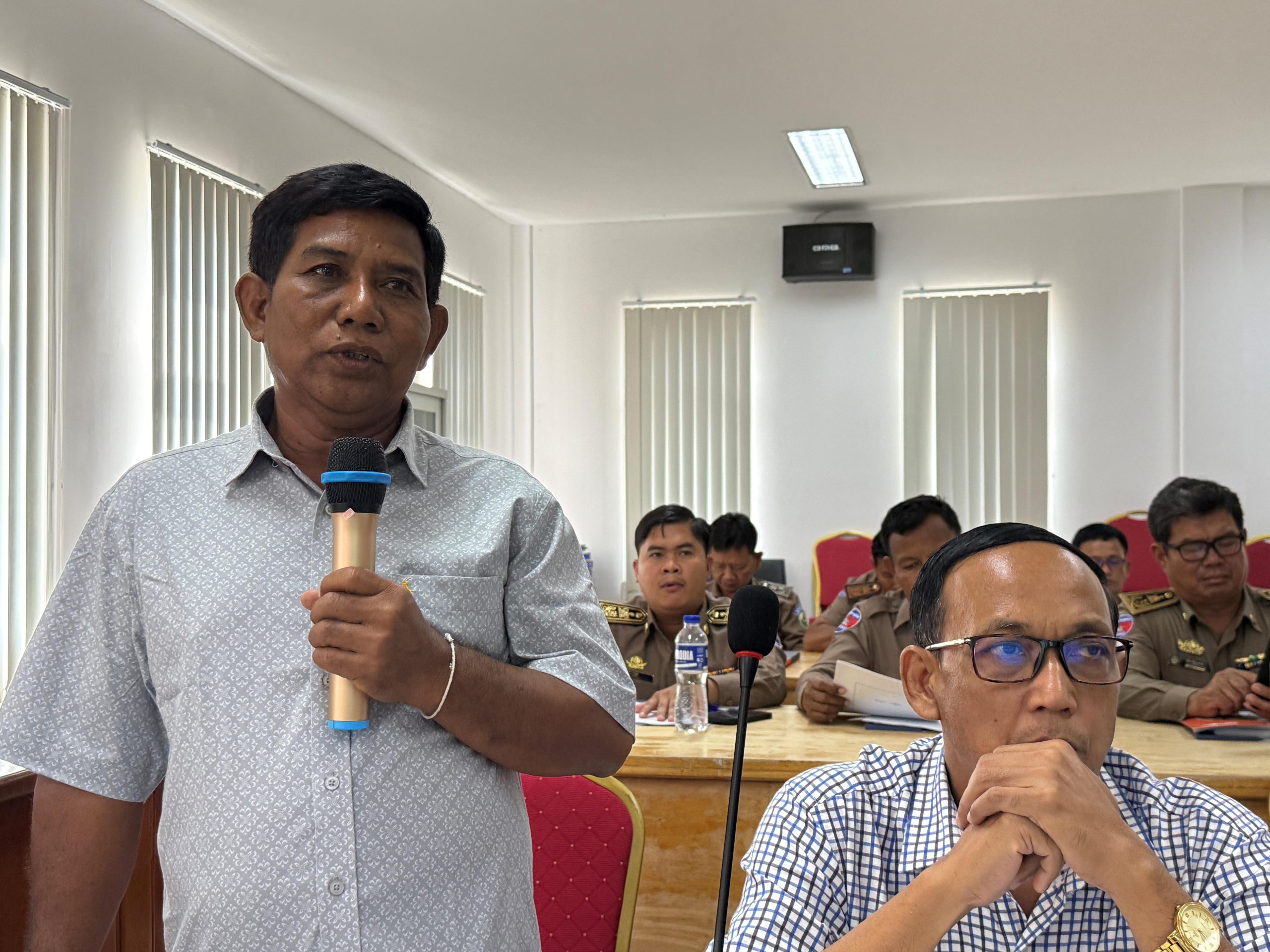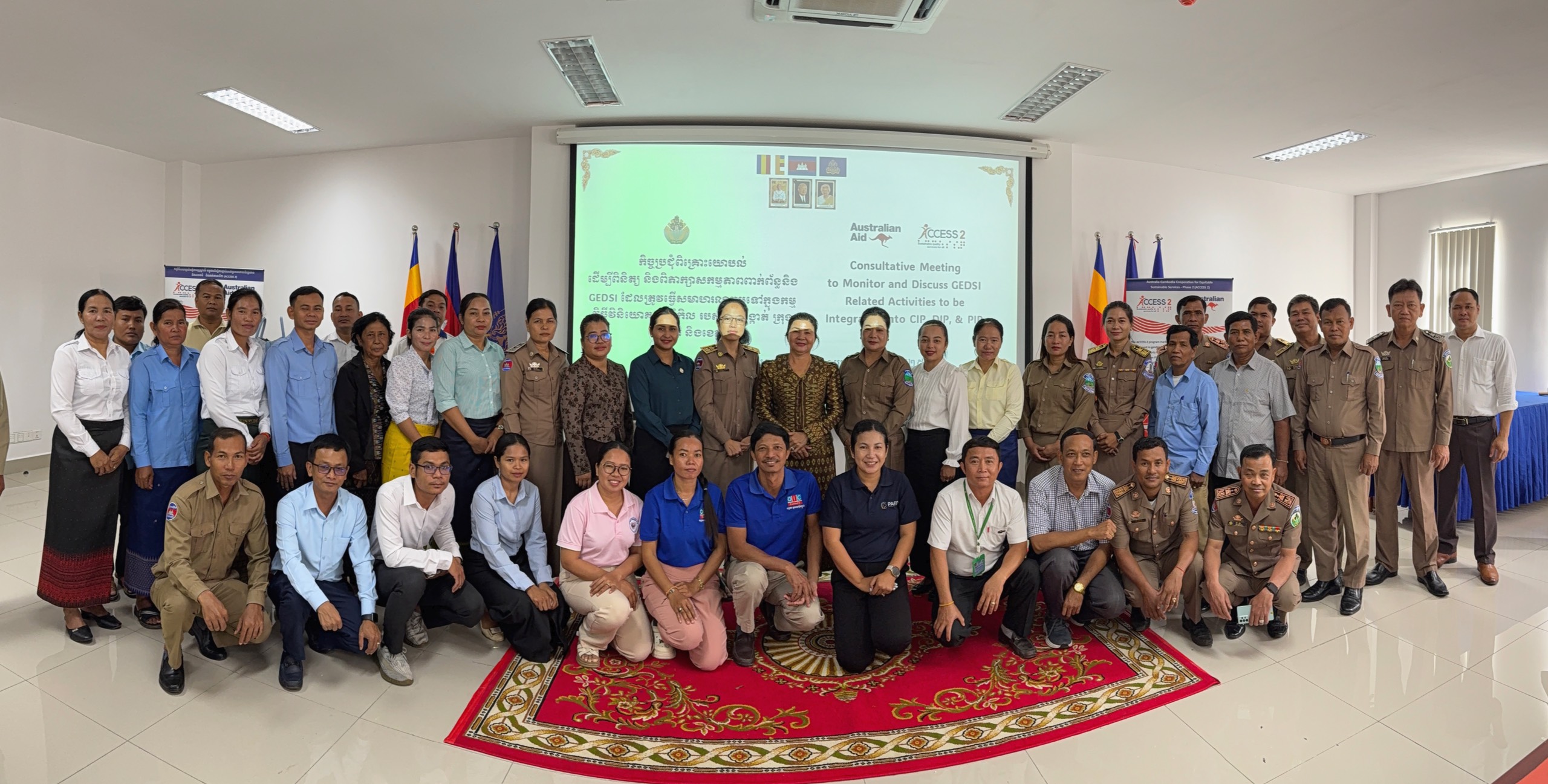Kampong Speu, October 9, 2025: The Provincial Coordination Committee (PCC), with support from ACCESS 2, organised a critical consultative meeting focused on strengthening the integration of Gender Equality, Disability, and Social Inclusion (GEDSI) principles into the sub-national investment programs. Chaired by Her Excellency Kea Sophou, Deputy Provincial Governor and Co-Chair of the PCC, the meeting brought together 43 participants (22 female), including key provincial departments, district authorities from six target districts, and representatives from Strategic Implementing Partners (SIPs).
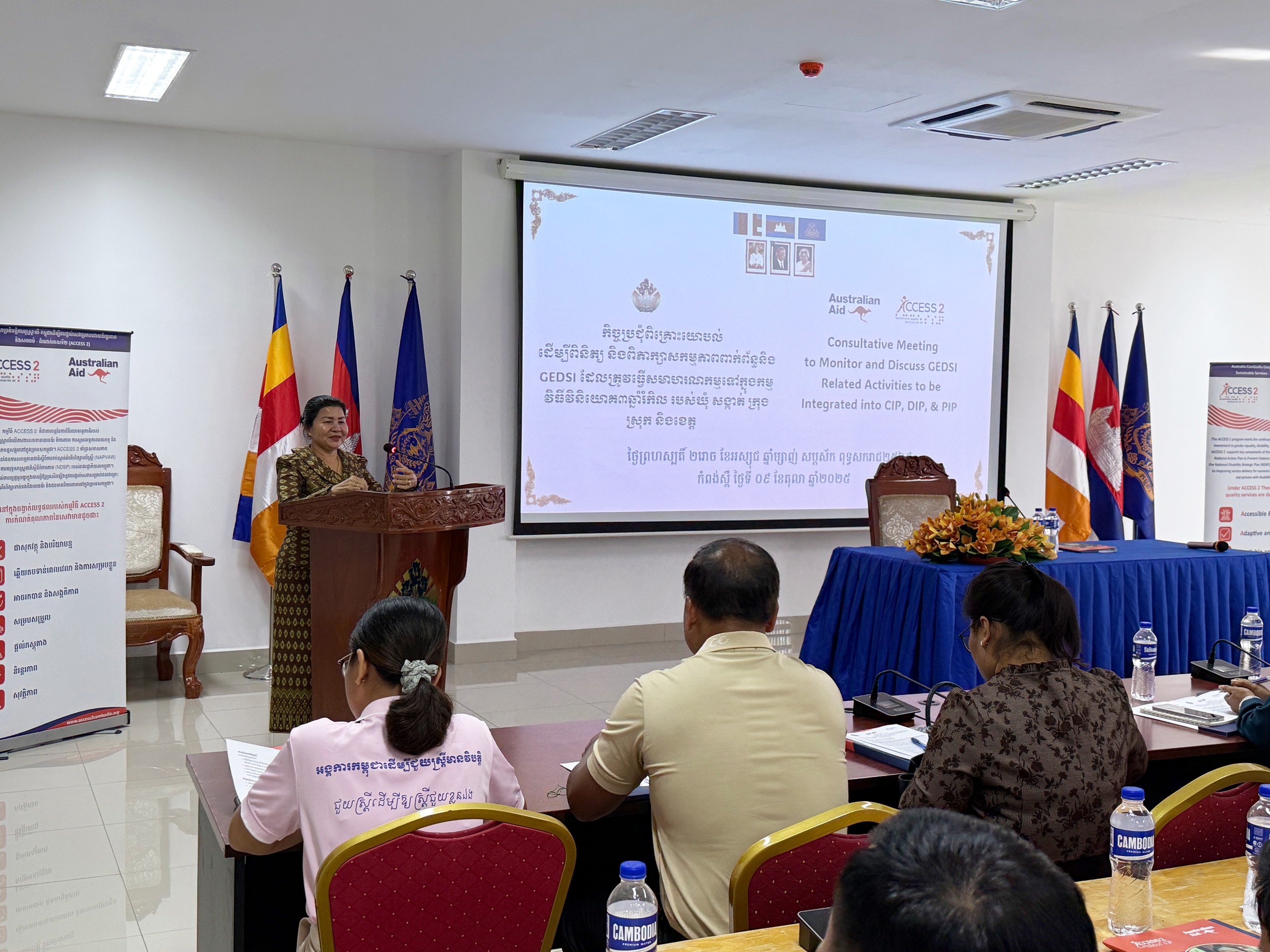 The primary objectives of the meeting were:
The primary objectives of the meeting were:
- to enhance GEDSI by promoting the allocation of budget to support sub-national investment programs and
- to review solutions for overcoming barriers to integrating GEDSI-related activities into the Commune Investment Program (CIP), District Investment Program (DIP), and Provincial Investment Program (PIP).
Budget Clarity and Inclusive Planning
The day’s agenda focused on both technical clarity and addressing real-world implementation barriers.
- Planning and Budgetary Foundations
- CIP Planning Process: Mr. Kat Pheap, Chief of Sub-national Planning from the Provincial Department of Planning (PDoP), provided an essential overview of the Commune Investment Program (CIP) process. He emphasized that the CIP is the most significant entry point for ACCESS 2 to mainstream GEDSI, stressing the need for development actors to align their priorities with the Commune Development Plan (CDP).
- Clarifying the Social Service Budget: Mr. Sun Sothea, Deputy Director of Provincial Treasury, presented on the Inter-Ministerial Circular No. 007 and MEF Letter 7221. This presentation was vital for providing sub-national authorities with clarity on the specific budget breakdown code for the Social Sector, ensuring they understand the mechanisms available for allocating dedicated social service funds.
- Overcoming Integration Challenges
Some challenges were highlighted regarding the timely inclusion of SIP-supported activities (from partners like LAC, CWCC, PAfID, and ICRC) in subnational investment programs. Many submitted activities were not adequately registered in the initial CIPs/DIPs before submission to the PDoP. This was due to the gaps in time and communication between SIPs and local authorities.
To address this, the meeting agreed on a proactive, short-term strategy:
The upcoming District Integration Workshop (DIW), scheduled for November 4–14, will be used as a critical engagement opportunity. ACCESS 2 SIPs will attend the DIW to directly engage with commune representatives and request on-the-spot updates and revisions to their planned activities to incorporate the missing GEDSI priorities.
This provide good lesson learned for future cycles, the PDoP made a strong appeal, requesting that all NGOs and development partners join the CIP/DIP process between January and September to ensure their activities are registered in a timely manner for the DIW.
Strong Mandate for Inclusion from Provincial Leadership:
In her closing remarks, Her Excellency the Deputy Governor issued strong directives, underscoring the provincial administration’s commitment to social inclusion:
- Inclusion Mandate: She urged sub-national authorities to actively include Organisations of Persons with Disabilities (OPD) and Women Representatives in the Commune Committee for Women and Children (CCWC) and ensure their meaningful participation in all stages of development—from planning and implementation to monitoring.
- Budget Efficiency: District authorities were instructed to ensure the efficient utilisation of their annual budget, noting that unlike commune/sangkat budgets, district/provincial funds cannot be carried over, preventing essential social service funds from being returned to the national ministries.
- Appeal for Support: She appealed to all development partners, provincial departments, and private entities to provide the necessary support for the priorities identified by local authorities through the DIP and CIP during the upcoming DIW.
This meeting marks an important step in reinforcing the Commune Investment Program (CIP) as the primary vehicle for delivering equitable and sustainable services to all citizens in Kampong Speu.
Next Steps:
PCC and PDoP will be closely monitoring the outcomes of the District Integration Workshop (DIW), scheduled for November 4-14, to ensure SIP activities and GEDSI priorities are successfully integrated into the final CIP/DIP documents.
